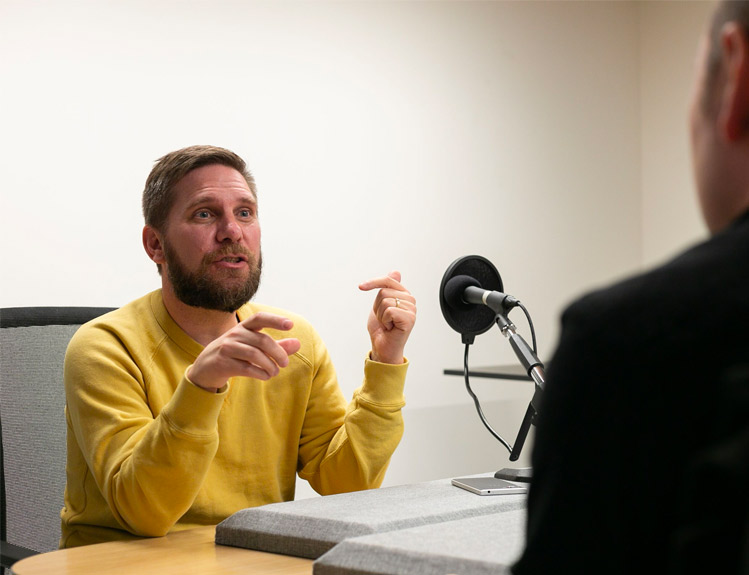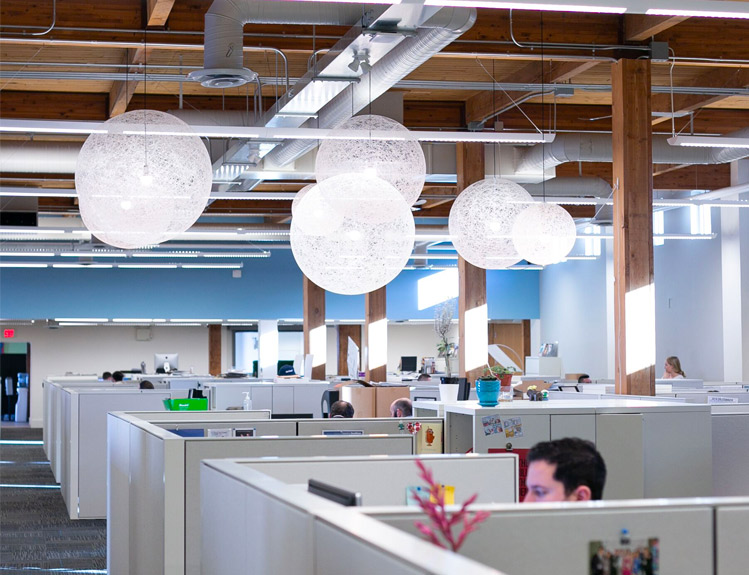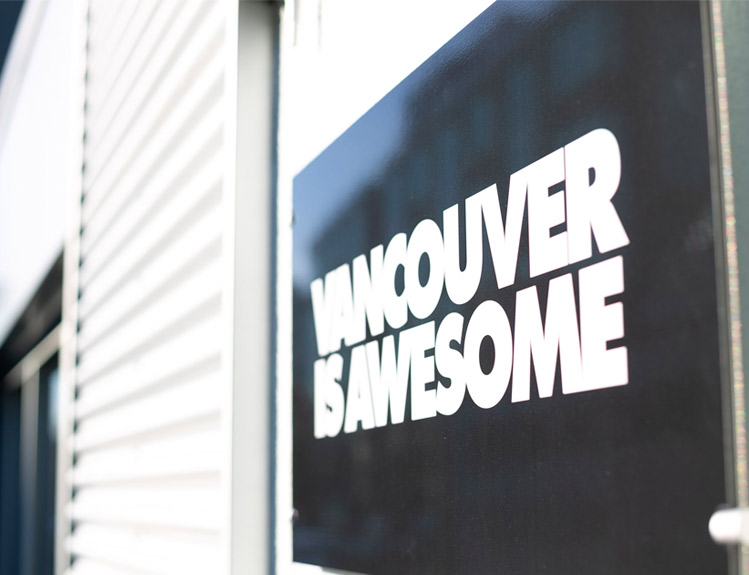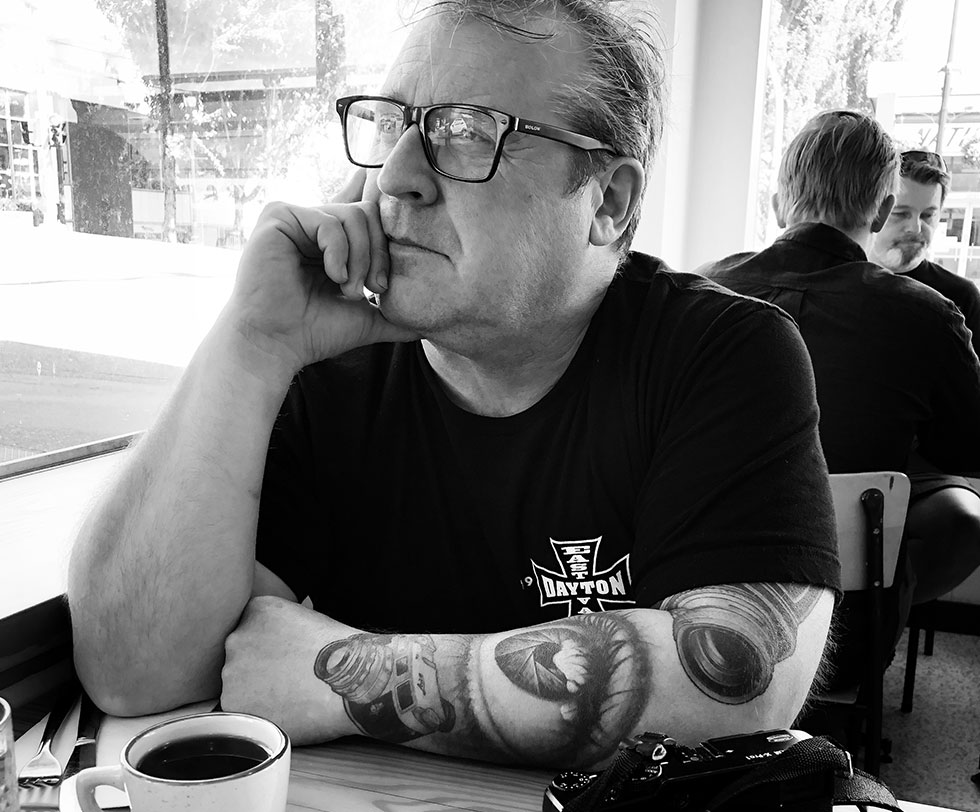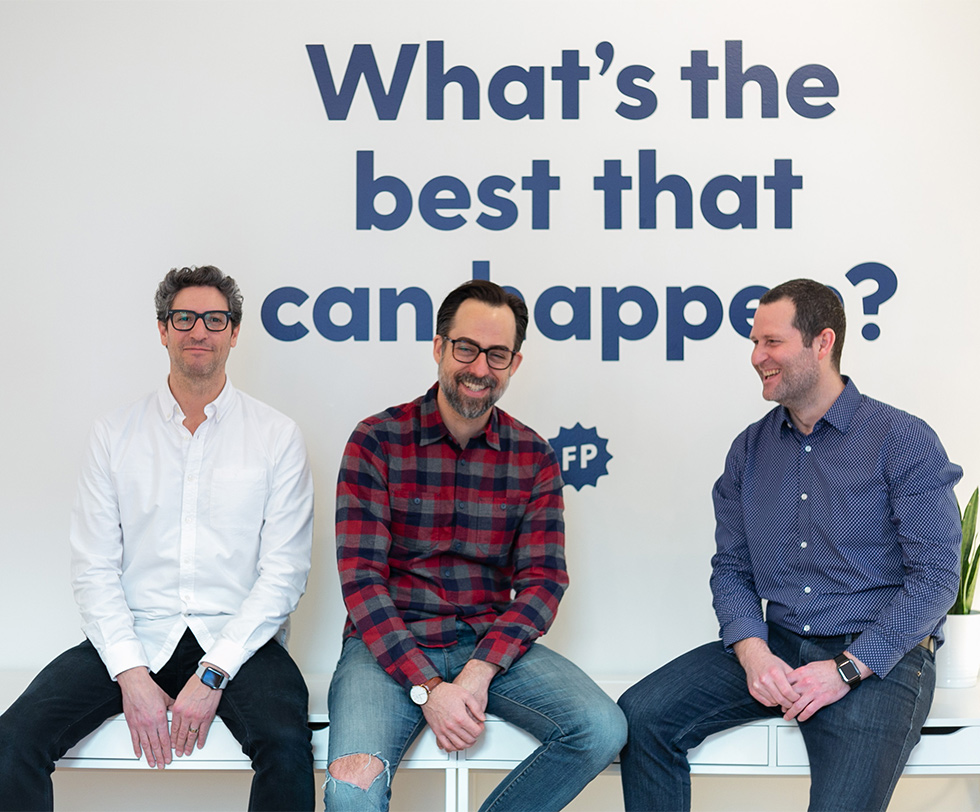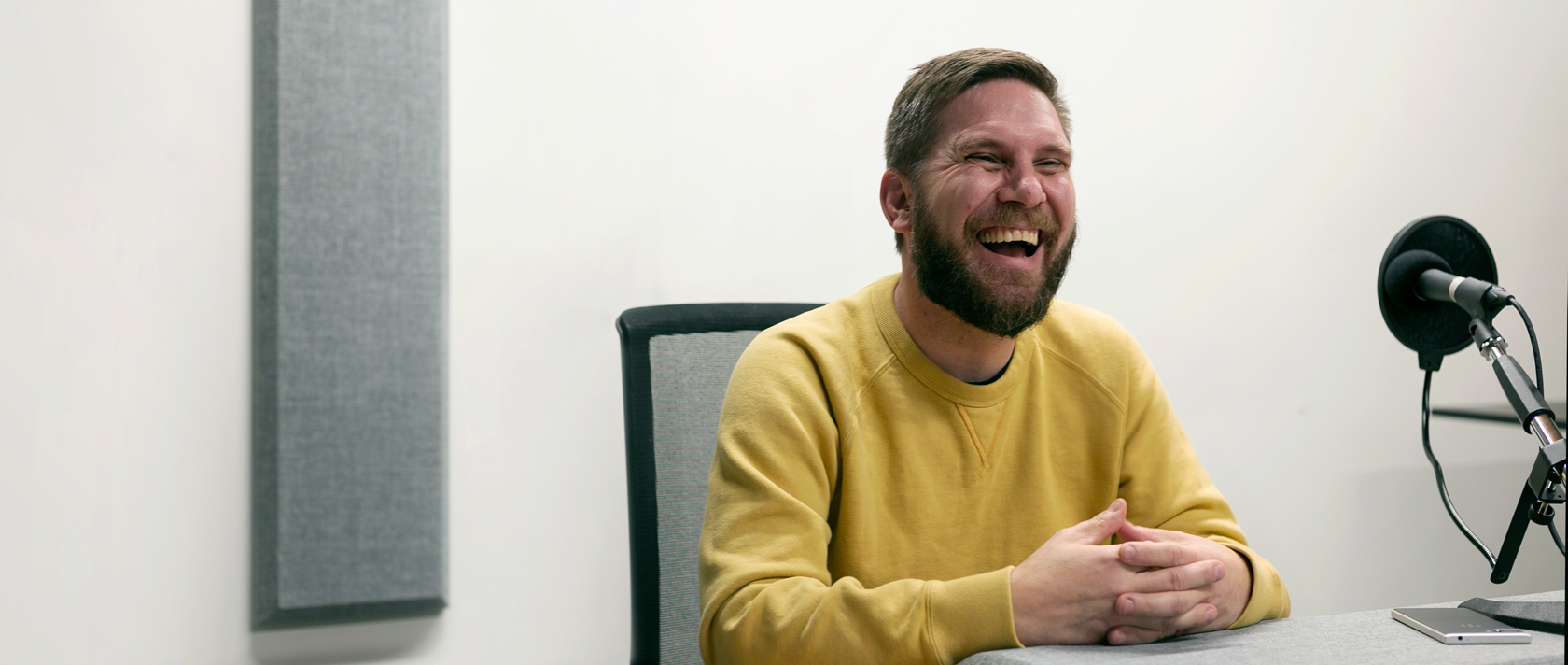
Bob Kronbauer from Vancouver is Awesome
TL;DR
-
- Founded vancouverisawesome.com as a passion project, now gets 1.6 million pageviews a month
- Barely finished high school
- Started one of the first skateboarding websites
- Hacked his way to success
- Thinks people should build businesses slow and steady
You were a graphic designer. Is that where your first job was?
Okay. So in let’s say ’96, I was working at Electronic Arts beta testing video games. The nerds there gave me software to make websites because they were like, “Hey, we’ve got all these pirated software.” They had Photoshop. They had Dreamweaver. They had CuteFTP. All the tools that you needed to build a web.
I had a 486 at home and loaded all this stuff on to it. As a teenager I made skateboarding zines. I started an online skateboarding magazine that was updated every month but updated every day in the news section. There were no online skateboarding magazines at the time, so it was the first online skateboarding magazine.
Would you go to the skate shop and there would be shoes, decks and everything, but there was nothing else you could consume online. So you were the first guy? The first skateboarding website?
There were two online websites that were concerning skateboarding and one was this girl named Matilda and then this other guy from the East Coast and they had skateboarding pictures. There was nothing else.
This was right before the dot-com bubble. I ran it for a couple of years and then the dot-com bubble came. A large dot-com out of the states or large VC firm basically bought that off of me and moved me to California to be the editor of their skateboarding website. It was called Hardcloud. It was skate, surf, and snow. They were buying up all this talent and then that company folded. They went for the round two funding and didn’t get it because the dot-com bubble had just crashed. Everybody was trying to get their second round of funding based on zero revenue and that was just not a good business model.
So it kicked me into the industry to work for designing websites for companies.
What did you go to school for? Did you go to college?
No. I barely graduated high school.
So your first, real entrance into this was by just being interested in doing a website? Because you’re a skateboarder?
And it was a hobby. So here’s the thing. After the dot-com thing burst, I went to work for Giant Distribution which owned 411 and they owned Element and Black Label. I made websites for Element and Black Label and then Andy Jenkins from Girl Skateboards called me and he was like, “Hey, don’t take a job because I might have something here for you at Girl Skateboards in the art department.” I said “Great! That’s the company I’ve always wanted to work for.”
The role at first was to help with the website stuff because they had a website called Crailtap.com, which actually still runs to this day. They needed my help with that and then they also needed me to help do design. It was pretty entry level in the art department in that. I was actually brought on to do resizing of ads and helping with the most boring of design tasks. Andy would design an ad and we’d need it for TransWorld. It’s a two-page print for TransWorld and their dimensions are whatever by whatever. And then Slap needs it and Thrasher would need it. Monster Children would need it in Australia. They all have these different formats. He taught me how to use Quark to reformat it which surprisingly took like half a day. It was so long and so tedious. You’d have to push some pixels around to make everything fit. It was insane.
And then they taught me how to use Illustrator. I didn’t know. “What’s vector?” What does that even mean, right? They taught me how to use it and then I started pitching ideas.
I just started pitching ideas like, “What about this for a t-shirt? What about this for board series?” And then eventually, I would lay them out and mock them out and then at the beginning of each season, they’d sit around at the table and slowly started getting designs in there. I designed a bunch of t-shirts.
“I don’t think anybody was asking me to do it. It’s pretty much with everything I’ve ever done. I kind of just hacked my way in, right?”
Would they ask you to design them?
It was a pretty open environment. There weren’t as many rules as our sort of a corporate structure, but I think my personality would be to just pitch it and then hope they like it. I don’t think anybody was asking me to do it. It’s pretty much with everything I’ve ever done. I kind of just hacked my way in, right?
Here’s the thing: I had this conversation with somebody, actually yesterday. I can’t remember what it was about, but it was, if you don’t ask, half of getting what you want is asking for what you want. Do you want to design a board? Nobody’s going to just come to you and say, “Hey, Bob, we think you might have some good ideas kicking around in that weird brain of yours. Would you like to design a skateboard with this graphic on it?” No. You got to do it. You got to just throw it out there at the risk of them saying no. What is the worst thing that could possibly happen?
Do you think you’re less afraid of failure though? Is that how people become successful? Not to think about it for too long, just do it and then muddle your way through? Is that sort of how Vancouver Is Awesome came about?
That’s exactly how it came about. So the story there is I quit working for Girls Skateboards. I was there for three years, and then was in L.A. and I had a bunch of freelance clients. I had quit Girl because I started a T-shirt company called Crown Farmer. It was off the side of my desk at Girl. It’s actually a big part of my story. It started at the side of my desk because they encouraged us there to do side projects. In the art department, they’re like, “Hey, you guys should do stuff outside of work.”
Why?
I don’t know why! The art director of Lakai, the art director of Four Star, and I, all had T-shirt companies. That’s why I left Girl. It was because I had to decide. It was like, “Do I want to work for somebody else or do I want to do my own thing?” And I wanted to do my own thing, so I quit.
They created a monster.
Exactly! I know, I think about that too. Man, be careful what you do with your employees. Like encouraging them all to start side projects that will then take them away from what they’re doing. They hated me after I left too because I was such an asshole. I was in my 20s. I look back on how I left and the situation and what I said after I left and all of the waste that I laid to the relationships that I had built up to that point and I’m now friends with them again. We’ve now like, just gone past it. We’re old now. Everybody is not in their 20s and 30s anymore.
How did you get to Vancouver from L.A.?
Yeah, that’s a really good question. So when I was sitting in my home office in L.A., I was like, “Oh I wish I could do this from Vancouver.” All of the L.A. stereotypes became true to me. I didn’t have many friends. It’s kind of all about who you know and how you can get famous and rich. But I just wished that I could do it from Vancouver and I could. I just had this revelation, oh my god, I can’t believe this. I can because it was just all freelance.
We were doing seasons. We would do two seasons a year. We do like a spring and a fall I think. I brought on a business partner to help me manage it. I can’t blame him for being a bad business person, but he helped me drive it into the ground. I probably took my eye off the things that were important and maybe tried to lean on somebody who wasn’t the right person to lean on, to take on some of the stuff that I wasn’t good at.
So if you were to tell somebody that’s about to bring a business partner on, how would you try to mitigate that? What kind of advice would you give?
Time.
Time. How?
Don’t just jump in to it. Like Vancouver is Awesome is now owned by Glacier Media. That didn’t happen overnight and they weren’t the first person that I talked to. It was a third person that I had serious conversations about this over the span of years.
There were times when it was just an investment. We’re talking to people about strictly doing an investment, but with Glacier, it’s a strategic partnership for them. It’s partly a talent acquisition for them because I’ve built up an online media property. They’re traditionally a newspaper company and they’re doing a lot in the digital space. As they move more and more and more into the digital space, me being here with Vancouver Is Awesome as a digital first property. We do some print stuff. We plan on doing a magazine and stuff. But, we’re primarily a digital thing.
Your advice with any deal or business relationship is like, slow and steady.
Slow. Yeah, and kick the tires, you know? Like ask around. Really do your homework on who you’re working with.
Looking at the mountains, I go, “Man, this place is awesome. Why isn’t there somewhere that just shares all the great stuff?”
Slow, organic growth is such a safer way to build a business, right?
That’s how Vancouver Is Awesome was started. It was off the side of my desk while I had freelance jobs. I was happy to be back. Excited. So stoked to be back. It was so fun and I loved the city and it was around that time #nofuncity was a thing. And the news is what it is. Doom and gloom. That’s the stuff that does really well and I was looking out the window of my office at my home. It was my home office too. Looking at the mountains, I go, “Man, this place is awesome. Why isn’t there somewhere that just shares all the great stuff?”
So I would go to the news. I would look at other websites and I would see all the shit, all the No Fun City, everything. Then at the end of the day, I would go to cuteoverload.com to like almost cleanse my palate. Oh, that’s nice. So the idea was to merge those two things—my interest in Vancouver and then this sort of cute, fuzzy, fun stuff. That was where it was just super black and white like it’s just about awesome stuff.
It was initially only like, if it’s not super happy and positive, it’s not making it on to the site. We got criticism for it, but we weren’t a news site at that time. We were a lifestyle publication.
But, that being said, now we do stuff about the housing crisis. We do stuff about bad news. It is what it is. We do more of the Awesome stuff about the city, stuff to do, stuff to check out, whatever, but the news volume has increased. The news gets more traffic too. We’re sort of more well-rounded now. The way that happened was through the partnership at Glacier. Because in the past, I just ran it, you know myself and another employee.
For how long?
Myself, full time for nine years. Let’s say, it was full time after about a year and a half. And then it was a lot of volunteers in the very beginning because it was like a blog. It was a group blog. It wasn’t a magazine. But then the first hire was a sales guy because I was doing all the sales. I was just catching balls. Any inbound sales I was catching. I didn’t have time to do any outbound stuff so I was like “Okay, cool, we got to hire somebody.” And then the second hire was Adam Nanji. He was more of a content editor, doing more in the content side. I did more on the business side and still more on the reporting side as well. But then when we came here, not only was I able to hire a couple more bodies to do reporting, but we cross post all the stories. You’ll see Vancouver Courier stories. You’ll see Business in Vancouver stories. You’ll see Burnaby Now stores, Richmond News. We have the Canadian Press.
North Shore News?
North Shore News! You see all those on VIA, right? And it’s like, we have the power of five newsrooms producing content which we then share with our audience, which was not their core audience. That’s when news came in and that was the test: how far do we push it? Like how far do we go in publishing news? Do we only publish happy stuff? Do we not do this sort of death stuff? Do we not do crime? And will our readers push back? Because over 10 years, we have trained our audience to expect. When you share something on Vancouver Is Awesome, it’s a stamp of we think it’s awesome.
Obviously, your audience didn’t push back.
They did at first. They’re like “What, this isn’t awesome!”
There was a lot. And because we didn’t really explain it, we kind of just did it. And then a few months later, like three months later, I was like “Hey, here’s what’s going on. Here’s what’s up.” But the test was sort of two-fold. One, sentiment and angry people, which generally 1% are going to say they’re angry.
The most vocal.
Yeah, and the other group was voting with their feet. Are people going to come to the website? Are people going to stop following us on Facebook? That was more important to me than people saying we don’t think this is awesome. Of course, I listen to our readers and I listen to what they say, but the real metrics to me lie in: are you really not going to read VIA anymore because we’re doing this?
Whether they say it or whether they do it, very different. So obviously, the numbers didn’t decrease over that period?
Year-over-year, 1,000% page view increase.
From going from awesome news to awesome and all news?
Our average, pre-Glacier average monthly page views were 130,000 page views a month. One year later, 1.6 million page views a month.
Because people are interested in what’s going around on around them
They want to know what’s going on in their city. Good or bad. And it’s not just simply we’re doing news, it’s the volume of news that we’re doing as well, whereas before, five stories a day maybe? Now, definitely 30 stories a day on a schedule from 7 a.m. to 10 p.m. in all the algorithms, the right spots, and all that kind of stuff. Lots went into it.
You were saying that you published five posts a day?
Before yeah. Now, I’m in an editor-in-chief/publisher role so I don’t write much content at all. I do a column say every week now, once a week. But in the past, I do 3, 4, 5 stories of my own a day. Alana does seven a day.
What’s the difference between you and Alana publishing five to seven posts a day and someone who wants a website, wants to do it but doesn’t do it.
Alana likes to write. I like to tell stories. I’m a storyteller. I want to share information with people. I want people to know this weird, random stuff that I come across. My wife doesn’t like writing. If she was to start a business, would she want to write even one thing a day? No, she wouldn’t. She wouldn’t do it. I don’t think. Most people that I know don’t.
So the people complaining about not being able to write just don’t want to?
Maybe. Like, if I didn’t want to I would just hire somebody to. Or tell them, from what I’m understanding, is that these people have some knowledge that other people don’t have that they should be sharing. I don’t know, maybe it’s worth just paying somebody for their time then you can focus on something else that you’re better at and that you’re good at and you want to do.
My secret to anything I’ve done is that I’ve always just done it.
I consider you successful and a common thread for success in business is not caring about the consequences. I think people just need to do it. They just don’t care.
That’s exactly it. My secret to anything I’ve done is that I’ve always just done it. Now that I’m in a corporate environment, a lot of the times, I just do it too. I’ll beg for forgiveness not permission. Oops, sorry, I didn’t know I was supposed to do that. Here’s the consequences. Or hurray! It did really well. Congratulations, Bob. Do something like that again. That’s what’s great about Glacier. They allow me the liberty to still run my own thing. Technically, I have a boss now, which is still funny and weird for me to say. But he’s more like a mentor or an enabler. He helps me and he allows me to go after stuff and do it.
That’s awesome. So that was going to be another question: how was it being acquired? Like you obviously kicked the tires and they went slow but how does it feel to essentially get bought? Is that was it was?
Yes. I was 100% owner and now I’m 0%.
Being bought out sounds like an awesome thing, but I hear it can be tough. People are usually very willing to get acquired because they see money coming their way.
Does it only sound awesome because they get pocketfuls of money?
From what I know, it’s almost unique in that you have 100% positivity around Vancouver Is Awesome and Glacier like coming together. And that you’re seeing 1,000% growth.
Not 1,000% growth in revenue, mind you. 1000% growth in page views. Also lots of growth in revenue as well because the resources that come with a giant sales team as opposed to the sales team I had before, so we’re up in revenue definitely.
This is just a passion project. This is just going to be as an outlet. And then it started taking up half of my work day and then I had to figure out how it could make money.
But just major growth, major success and everyone’s happy.
That’s the thing about it being a perfect fit. I think in the VC world and the start-up world where you’ve got all these people with piles of money lined up, the goal is to eventually sell your thing. Right? That’s the goal. That’s why you do a start-up, right? So that you can eventually sell out of it and walk away with your cash and your ego and whatever. That’s how you sell everybody on it. In every step, your first round at selling people based on “So yeah, we’re going to grow this thing slow.” In the next 10 years, maybe make a living off it. It’s like fuck yeah, you give us $10 million. I’m turning that into $100 million.” The next round, you’re going to get bought out. This is going to happen. That’s what you’re doing from the beginning.
For me, I was thankful when it turned into a job. What I didn’t say actually was it was off the side of my desk and I explicitly told my wife, I was like “This is the one thing that’s never going to make money. This is just a passion project.” This is just going to be an outlet. And then it started taking up half of my work day and then I had to figure out how it could make money.
So from the outset, that’s not what it was started as. Then coming to Glacier, they’re not a start-up. This company has been around—we own 100 newspapers. It’s solid. It’s rock solid. It’s built on a foundation of editors, publishers, people from the publishing industry all coming together and part of their strategy which I knew was “Hey, we want to take this digital property and we want to invest in it and we want it to make money and we want for you to run it. We want you to run it and we’re not.” That was part of it, was that “We’re not interested in buying your 150,000 Facebook followers and your website and your name. If you don’t come with this thing, we don’t want it.”
It wasn’t like “Hey, you’ve got this thing called Instagram and it’s a cool picture thing and I know you guys liked sharing pictures. On the flip side of it, we’re also selling our data blah blah blah.” We have these other goals in mind, you know?
There’s no hidden agenda here at Glacier. It’s a publishing company. It’s a media company. They do what they do. We do what we do. I guess I’m fortunate in that.
Two ways of doing things. If you’re starting a start-up to sell it, the goal is money. The goal can also be to organically slowly build the thing. They’re of two different worlds.
That’s a lifestyle business, right? Or it’s not. Because you could say VIA is a lifestyle business, but I don’t know. I think almost the word “start-up” to me implies that you’re looking for an exit. You do a start-up and you do an exit from your start-up.
So you started a business you didn’t want to ever end. That’s why it went so well? It seems that you published so often because you liked it. Maybe if we’re telling people to do something they don’t like, hey, that’s not going to go well. But if you do something you like, you started it because you like the idea. You keep doing it because you like it and you do it consistently, I think you have 6,000 posts on VIA. That just sounds like a labor of love.
In the beginning, it was. That’s the beauty of it turning into a job and why I feel so fortunate to be where I am right now that I just stuck with it for so long and trudged along. At first, when it was a business, we lived under the poverty line. For years, boot strapped it on my own and barely made any money. There were times when I was like, I should just go get a job at Telus. Like many times where I was like, can’t make the rent this month. I have to call my mom to borrow money to make the rent. At what point do you throw in the towel? Because you know you can get a job somewhere else. That’s always there. That sounds very privileged, but for me, I think that at any point, I could just leave and go find a job somewhere else.
No, it doesn’t sound privileged because you were obviously not starting this thing with bucket loads of cash. Do you think in L.A., it’s harder to make something?
L.A. is Awesome would be a drop in the bucket.
But Vancouver Is Awesome, there’s just wasn’t anyone doing it. Because of the lack of hustle culture here?
Lack of hustle culture.
Toronto has a hustle culture. You hear about New York hustle culture and what that’s like. The expectation of people here is lifestyle. Everyone prioritizes lifestyle over work.
Yeah, but I think that it’s changed over the last decade. In the past, it was real easy to get a place to live for 600 bucks. Rent a one bedroom in your friend’s place, 500 bucks even. You know? Get a bunch of people together, live in a house, whatever it might be. Now, as rents get more and more and more, I think that sort of hustle is getting pinched out of Vancouver. I don’t know if those people are leaving or if they’re being forced to hustle or what. I’m really old—and I’m married. I wouldn’t get roommates.
I just wonder, we’re definitely not attracting the type of people that move to Vancouver. When I moved in Vancouver, I had a large one bedroom for $585 a month to myself, the whole place to myself, and that was a hustle to make it work. It was tough. But now, is it not harder? Does it drive people away?
The housing crisis scenario is driving people away?
When I didn’t have any money and I was just hustling, I was always asking why people are complaining, you know? Especially creatives. I was like, “If you’re so creative, you can figure a creative way to stay in the city” was my thought then. Now, it’s more hard. Then it was like okay. Rents are going up. Now, it’s like that’s ridiculous to say that “Hey, just get creative you fucking, lazy deadbeat.”
Because of $3,000 a month for rent.
You got to be pretty creative. And I don’t come from money either. I think that comes through in this conversation. Like my dad’s a contractor and you know, I was raised in a blue collar family with a black and white TV and powdered milk and uphill both ways to school kind of thing. What I built is not off of someone else’s money or family money or whatever.
Yeah. I wonder who’s benefiting from people leaving? But I just can’t move. I like Vancouver too much.
My kid’s in grade 5 now. I don’t want to move him out. I daydream about moving out. But then, when I do think about it, the food here, the food here is amazing! I was looking out at the Powell River. Everything is at your fingertips. If you didn’t want to own a car, you can just have an Evo and drive somewhere. There’s concerts. There’s just so many things that I think about where I’m like, would it be nice to have a cottage somewhere and just live out in this place. But I can’t do it. No. I’ll do it for the weekend but just the city, everything that’s here.
There’s too many good things about it. Vancouver Is Awesome.


